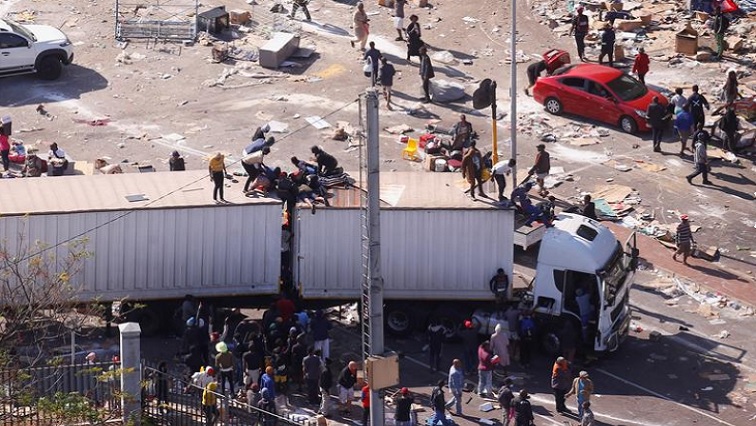Today marks four months since South Africa was rocked by the worst violence in its democracy. This is after former President Jacob Zuma started serving a 15-month prison sentence for contempt of court on July 8.
His supporters in KwaZulu-Natal set up roadblocks on major highways and burned about 20 trucks on the N3 highway, leading to the attack on warehouses for major retailers and factories, which were set alight.
While some alleged instigators of the violence have been arrested no one has been held accountable so far. The unrest which lasted for a week claimed at least 350 lives.
Described as South Africa’s worst violence since the birth of democracy, the July unrests exposed the country’s intelligence and policing capabilities, as they continued for a week before being contained.
Shopping malls and centres were ransacked by mobs. Attacks on retail centres also spread to Gauteng province, in Johannesburg, and to Pretoria, the capital. The cost of the civil unrest is estimated at R50 billion.
Government said the unrest was an attempted insurrection:
3500 people were arrested on charges including theft and vandalism, several were arrested for allegedly instigating the violence. Four months on, the government seems to have gone quiet on the attempted insurrection. Security Expert, Dr Johan Burger says this is disappointing and frustrating.
“At the time when these incidents happened in July, there was loads of communication from the government, the president referred to an insurrection, so as South Africans we were all alarmed about the seriousness of the causes behind the violence, and we were told at a time 12 people were identified, some of them were arrested and it all went quite.”
Businesses suffered losses during the unrest:
In September, President Cyril Ramaphosa appointed a three-member panel of experts to review the response of the government during the unrest. Burger says the lack of communication on the work of the panel is also worrying.
“So it’s four to five months down the line, we want to know, are we still at risk of an insurrection because some were saying that those behind whatever happened in July if they are not exposed and prosecuted that they may seek an opportunity to continue with what they did, some of the view that might interfere with the elections which didn’t happen but who knows it might happen sometime when we expect it least.”
Former Ukhozi FM DJ Ngizwe Mchunu, Fees Must Fall activist Bonginkosi Khanyile and popular Twitter user Zamaswazi Zinhle Majozi also known as Sphithiphiti Evaluator is among the several alleged instigators.
Dr Vanya Gastrow from the University of Cape Town’s Centre for Law and Society says while law cases take years to be concluded, it is strange how prominent persons said to be the main instigators are yet to be arrested.
“What I find strange about the arrests and investigations is that there are no senior people who have been accused of anything so the people who are currently being prosecuted a lot for them instigated violence on social media but I would be interested to see whether other more senior people are who were involved in planned this violence.”
During a media briefing last month, Police Minister Bheki Cele said they were close to cracking the matter.






